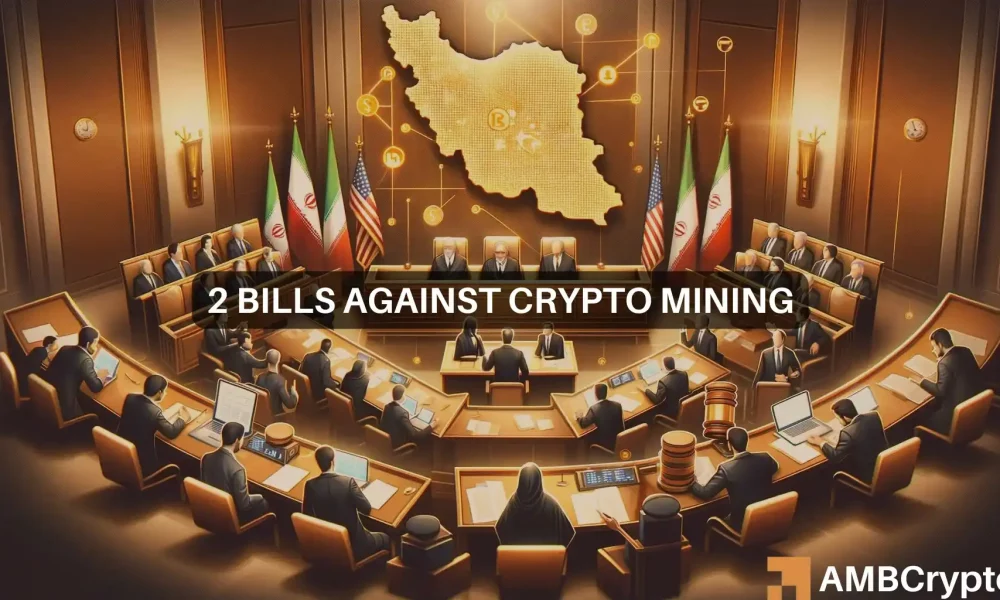Bitcoin
Iran & Arkansas – Is crypto mining under threat right now?
Iran and Arkansas – Crypto mining is quickly becoming a hot topic across all levels of government

- Senators Warren and King believe Iran’s crypto mining profits pose national security concerns
- Arkansas lawmakers passed a bill regulating crypto mining
With Bitcoin’s halving well behind the industry right now, all eyes are now fixed on miners and the ripple effects on crypto mining worldwide. At the forefront of this discussion stands Iran, a country that has a history of facilitating mining services and has used crypto-mining to evade global sanctions.
According to U.S Senators Elizabeth Warren and Angus King, “Iran has raised millions of dollars through mining crypto.”
Senators’ letter highlights concerns
In a joint letter written by Warren and King, the Senators have now sought clarification over the Biden administration’s plans to tackle Iran’s use of cryptocurrency mining to evade U.S. and international sanctions. According to the lawmakers,
“This ongoing activity by the Iranian government threatens our national security.”
They added,
“Crypto-mining has become increasingly lucrative for Iran. Between 2015 and 2021, Bitcoin mining funnelled more than $186 million into Iranian crypto-platforms, most of it in 2021.”
Arkansas’s passage of new bills
Crypto-mining isn’t an international issue alone. Domestically too, it has been in the news a lot lately. In fact, Arkansas lawmakers have now approved two bills regulating cryptocurrency mining. The decision stems from criticisms surrounding noisy operations, excessive water and electricity consumption, and cybersecurity risks linked to foreign ownership.
Senate Bill 78 imposes noise limits and ownership restrictions on crypto-mines, while empowering local governments too. On the other hand, Senate Bill 79 mandates state licensing through the Oil and Gas Commission.
These bills aim to rectify perceived shortcomings in the 2023 Arkansas Data Centers Act (Act 851), which previously prevented local oversight of crypto-mining. Despite its smooth passage in 2023, Act 851 drew criticism from some quarters for being inadequate on the regulatory front.
Lawmakers’ debate
Lawmakers, acknowledging their oversight, have responded by passing these new bills, marking a notable legislative development during a fiscal session. It’s worth pointing out, however, that during the debate between the lawmakers, Rep. Tippi McCullough asked,
“Does the bill mandate, specific types of noise reduction listed, or might open it up to maybe just putting some cotton balls outside the walls and saying ‘we tried to reduce the noise.’”
Sen. Joshua Bryant replied,
“The bill should be read to mean that noise reduction must be as effective as those methods.”
Not everyone agreed with the scope of these bills though, with some voicing reservations while others claimed that this is simply a temporary solution until something permanent is legislated upon.
Needless to say, despite it being almost a month after the halving, miners still have a lot on their minds. Both on the domestic and the international scale.

